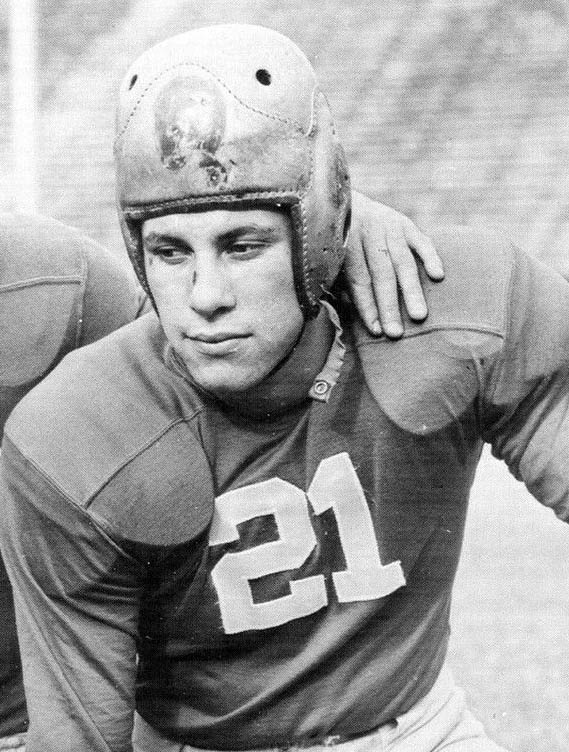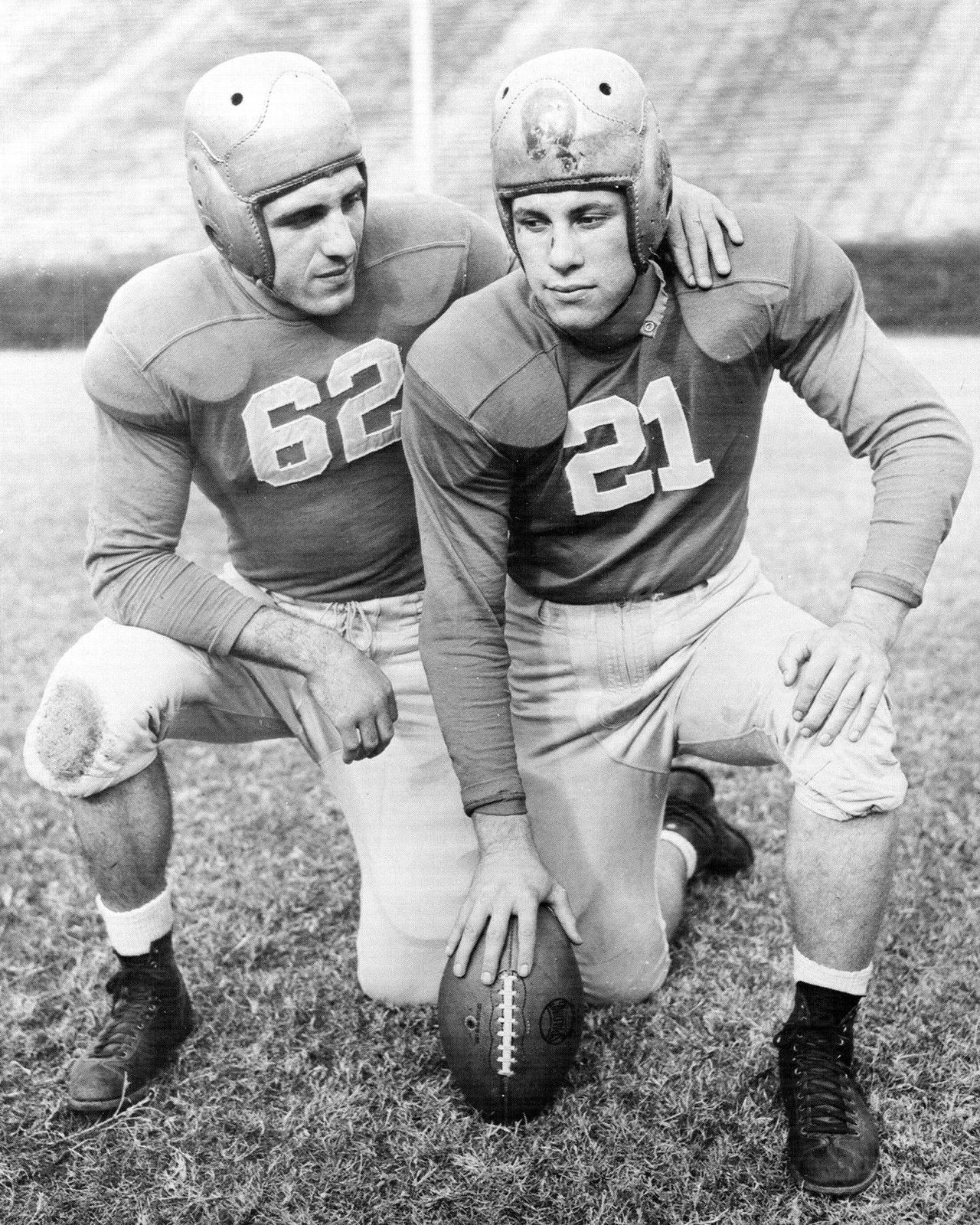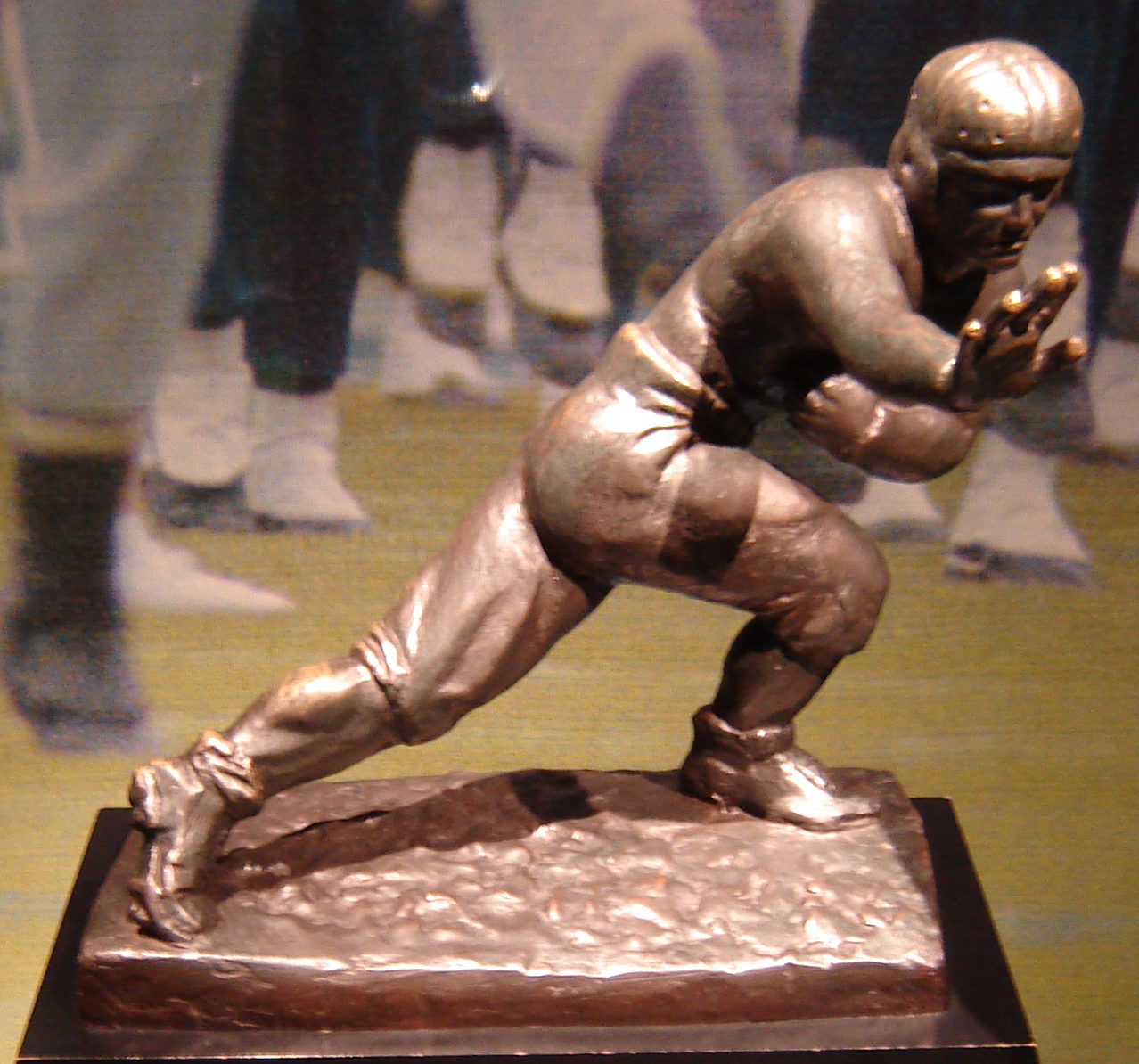The Croatian who was the first Heisman Trophy winner born outside U.S.
- by croatiaweek
- in Sport

Frank Sinkwich (Photo: Public domain)
The Heisman Memorial Trophy is the biggest and most famous award in college football in the United States.
The winner of the 89th Heisman Memorial Trophy, which is awarded annually to the most outstanding player in college football, will be named this weekend.
One interesting and little-known fact about the trophy is that only three winners in its 89-year history have been born outside of U.S. – Robert Griffin III, Tim Tebow and Croatia-born Frank Sinkwich, who was the first to achieve that feat.
Sinkwich was born on October 10, 1920, in Zagreb, Croatia. He was from the village of Starjak near the Croatian capital and it is reported that the family changed their surname from Sinković to Sinkwich upon arriving in the U.S. where they made Youngstown, Ohio home.

Frank Sinkwich (right) during his time at the Bulldogs (Photo: Public domain)
Sinkwich became a football legend and etched his name in the record books as the first Georgia Bulldog to win the Heisman Trophy and the inaugural recipient born outside the United States.
His journey to football greatness began as a standout high school athlete at Cheney High School in Youngstown, Ohio. His prowess on the field caught the attention of the University of Georgia, where he led the freshman team to an undefeated season in 1939, earning them the nickname “Point-A-Minute” Bullpups.
His breakthrough came in the 1940 season when he showcased his exceptional skills in crucial games against Georgia Tech and Miami. Sinkwich’s outstanding performances led to his inclusion in the United Press International All-Southern first team.
As a junior in 1941, Sinkwich set an SEC rushing record with 1,103 yards, a mark that remained unbroken for eight years. Additionally, he accumulated 713 yards passing, establishing a new SEC total offense record of 1,816 yards.
His crowning achievement that season was leading Georgia to a 40-26 victory over TCU in the Orange Bowl, a performance still revered as one of the best in bowl history.
Despite playing with a broken jaw protected by a custom-made facemask from the third game onward, Sinkwich earned almost unanimous All-America selection for his remarkable efforts. In his senior season, he continued to shatter records, gaining 795 yards rushing and setting the SEC passing record with 1,392 yards, a feat that stood for eight years.
Sinkwich’s impressive statistics culminated in him being named a unanimous All-America choice and the first Heisman Trophy winner from Georgia. In a historic career, he rushed for 2,271 yards, passed for 2,331, and accounted for an astounding 60 touchdowns—30 rushing and 30 passing.
Following his collegiate success, Sinkwich transitioned to the professional arena, where he earned two All-Pro selections with the Detroit Lions in 1943-44. Unfortunately, a knee injury in 1945 curtailed his professional football career. Undeterred, Sinkwich later served as the head coach of a professional team in Erie, Pennsylvania, in 1949 and at the University of Tampa in 1950-51.

Frank Sinkwich (Photo: Public domain)
In recognition of his lasting impact on the sport, Sinkwich was inducted into the National Football Hall of Fame in 1954 and the State of Georgia Sports Hall of Fame in 1967. His legacy endures at the University of Georgia, where he was honored with induction into the Circle of Honor in 1996, and his jersey remains one of only four retired in Bulldog football history.
Frank Sinkwich’s remarkable journey from Croatia to college football stardom and beyond serves as an enduring testament to his resilience, skill, and pioneering spirit, forever etching his name in the rich tapestry of American football history. Though he passed away on October 22, 1990, his legacy lives on, inspiring future generations of athletes to strive for greatness on and off the field.










